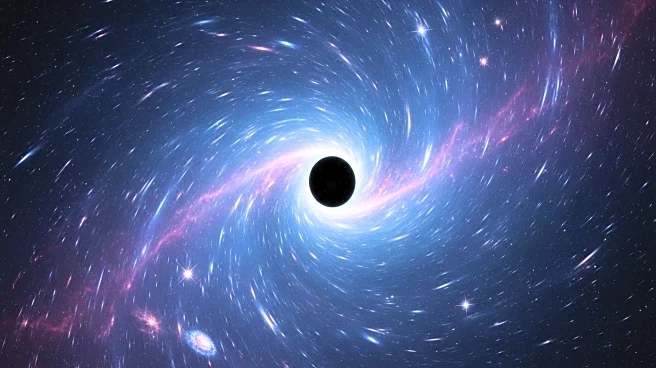What is the story about?
What's Happening?
A recent gravitational-wave discovery has confirmed Stephen Hawking's area theorem, which states that the area of a black hole's event horizon must always increase. The discovery was made through the observation of a black hole collision, which produced gravitational waves that were detected by the LIGO, Virgo, and KAGRA collaborations. This confirmation marks a significant milestone in astrophysics, as it provides the most precise test of Hawking's theorem to date. The gravitational waves observed were almost four times as loud as the first detection in 2015, allowing scientists to measure the masses and spins of the colliding black holes with unprecedented accuracy.
Why It's Important?
The confirmation of Hawking's theorem is a major advancement in the field of astrophysics, as it validates a fundamental aspect of black hole mechanics and entropy. This discovery enhances our understanding of the universe's structure and the behavior of black holes, which are key components in the study of cosmic phenomena. The ability to accurately measure gravitational waves also opens new avenues for testing other scientific theories and exploring the nature of dark matter and dark energy.
What's Next?
Future gravitational wave observations are expected to test more exotic scientific theories and probe the missing components of the universe, such as dark matter and dark energy. The continued improvement of gravitational wave detectors will likely lead to more discoveries and insights into the universe's mysteries, further advancing the field of astrophysics.
















